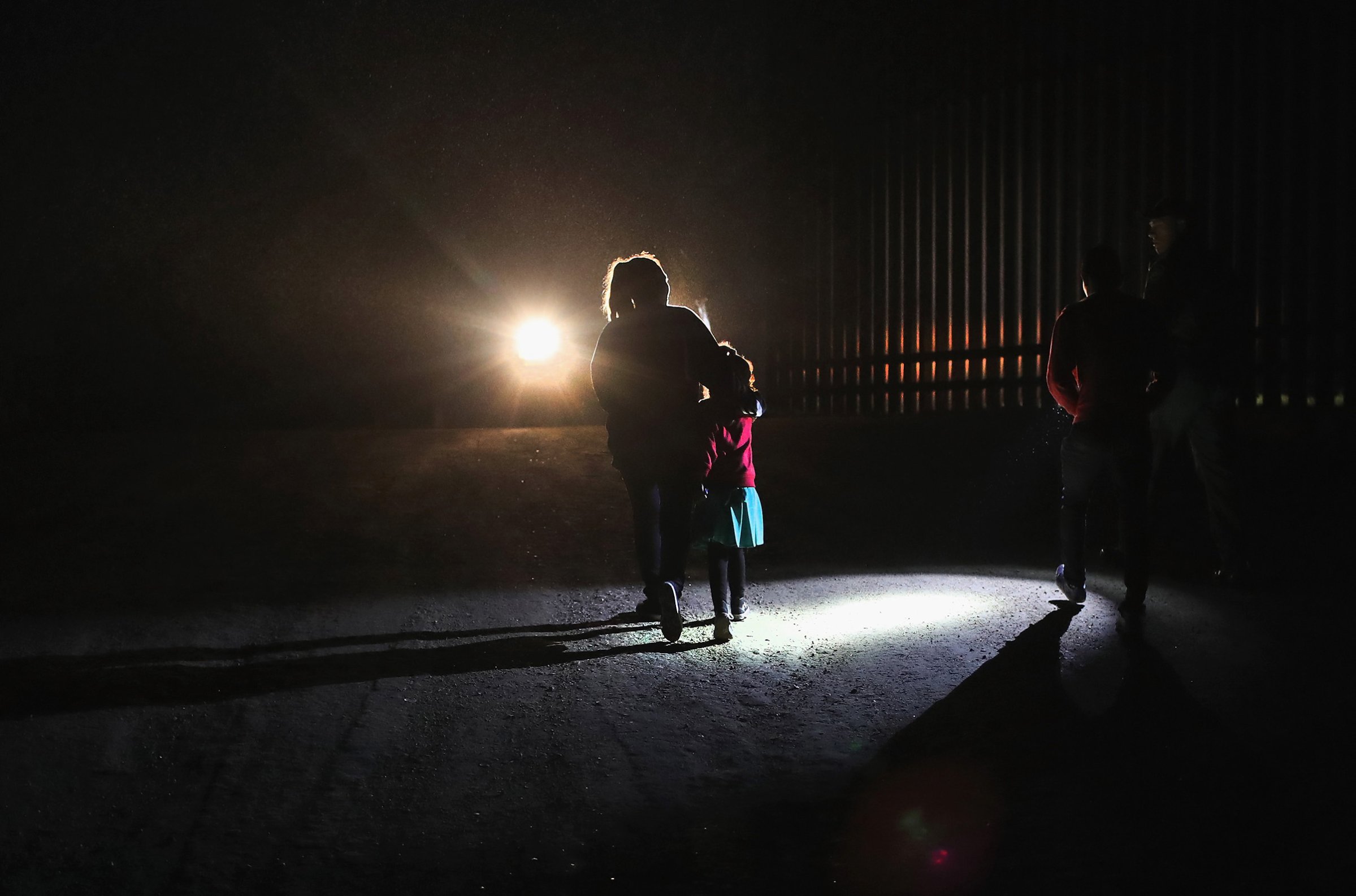
Earlier this year, a young Honduran woman named Mirian gathered her 18-month-old son into her arms and walked across the bridge between Matamoros, Mexico, and Brownsville, Texas, where she presented herself to U.S. border agents to ask for asylum. Mirian and her son spent the night in a detention facility. The next day, officials told her to put her son into a car seat in the back of a government vehicle. Her hands shook as she buckled him in. The officials wouldn’t tell her where they were taking him, she wrote in a personal statement later published by CNN.com–only that she would not be allowed to go with him. As the car pulled away, she could see her baby looking back at her through the window, screaming.
For the next 2½ months, Mirian was detained at an immigration center, unable to speak with or visit her son, according to her lawyer Elissa Steglich. Mirian wondered if her son would forget the sound of her voice. “The separation is very harsh,” says Denise Gilman, who heads the Immigration Clinic at the University of Texas School of Law, and who met with Mirian. “It often means not knowing where the other is.”
Mirian and her son were eventually reunited, but a version of her parental nightmare has now become U.S. policy. On May 7, the Trump Administration announced a “zero tolerance” agenda on the U.S. border. The policy seems simple: anyone who crosses the border without authorization is now subject to prosecution for a federal misdemeanor, which can result in a sentence of 180 days for a first offense. Because children can’t be jailed alongside adults, minors must be separated and kept in juvenile facilities while their moms or dads are incarcerated.
The crackdown on prosecutions has triggered an explosion of family separations. While ICE has not released official numbers, Reuters reports that as many as 1,800 families have been separated since late 2016. Regional public defenders report that some 400 children were separated from their families during a two-week stretch in May and June in McAllen, Texas, alone. “This is definitely new,” says Diane Eikenberry, an associate director at the National Immigrant Justice Center. “It’s something we haven’t seen.”
The new policy has extended not only to those crossing the border illegally. In a number of cases, says Lee Gelernt, deputy director of the American Civil Liberties Union’s Immigrants’ Rights Project, federal agents appear to have taken children away from their parents even when the parents have followed legal protocol for seeking asylum. Mirian, for example, was never charged with a crime, says Steglich.
The new “zero tolerance” policy also marks a profound break from past Administrations, when parents traveling with children were usually either released wearing tracking devices, detained with their children or admitted to case-management programs in an effort to keep families intact. A Department of Homeland Security spokesperson defended the Trump Administration’s hard-line policy on the grounds that the government regularly incarcerates American-born criminals with children. “If you commit a crime, the police will take you to jail–regardless if you have a family or not,” the spokesperson said. He declined to address questions about pending litigation involving immigrants who were separated from their children despite not being charged with a crime.
Immigrants’ advocates offer wrenching accounts of how, exactly, federal authorities remove children from their moms and dads. On some occasions, advocates told TIME, kids are pulled, sobbing, from their parents’ arms. On other occasions, agents have allegedly lied. “They say, ‘We’re just going to take your kids to have a bath,'” Gilman says. “But then they don’t bring them back.” The American Academy of Pediatrics recently published a letter noting that taking a child from a parent can do “irreparable harm, disrupting a child’s brain architecture and affecting his or her short- and long-term health.”
Reuniting families once parents are released is also a complicated process, fraught with delays. Because it requires that Customs and Border Protection, the Department of Health and Human Services and the Office of Refugee Resettlement, among other federal agencies, communicate with one another, not all families have been reunited, advocates say. In some cases, they say, parents have been deported while their children remain in the U.S.
Whether a policy that results in the mass separation of children and parents violates the Constitution’s guarantee of due process remains an open question. In June, a federal judge appointed by George W. Bush refused the Trump Administration’s request to dismiss an ACLU lawsuit challenging the policy. The government’s conduct, if true, appears “brutal, offensive, and fails to comport with traditional notions of fair play and decency,” the judge wrote. He is expected to rule on the case this summer. The Texas Civil Rights Project and other groups have also filed an emergency injunction with the Washington-based Inter-American Commission on Human Rights. Gelernt, who argued the ACLU case last month, said the question of whether the policy is legal looms large. But beyond that, he said, there’s a question of what’s humane. “Why be so mean-spirited?” he said. “So gratuitously cruel?”
More Must-Reads from TIME
- Cybersecurity Experts Are Sounding the Alarm on DOGE
- Meet the 2025 Women of the Year
- The Harsh Truth About Disability Inclusion
- Why Do More Young Adults Have Cancer?
- Colman Domingo Leads With Radical Love
- How to Get Better at Doing Things Alone
- Michelle Zauner Stares Down the Darkness
Write to Haley Sweetland Edwards at haley.edwards@time.com